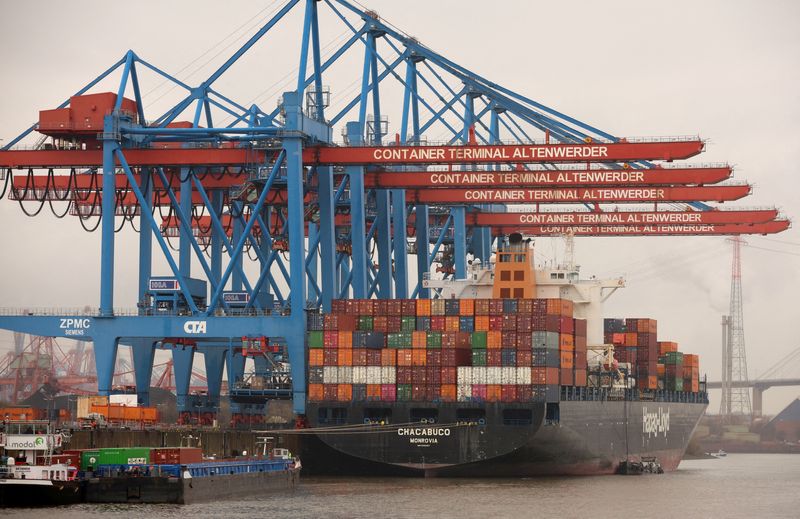German economy likely to stagnate in 2024, IW forecasts
2024.05.08 00:09

By Klaus Lauer
BERLIN (Reuters) – Germany’s economy will stagnate in 2024 despite a stronger than expected start to the year, and will continue to lag behind European peers, according to German economic institute IW.
Manufacturing and the construction sector in particular remain stuck in recession, according to IW’s latest forecasts, which Reuters is first to report and will be published later on Wednesday.
Consumption will be the only bright spot as it picks up as inflation eases.
“That’s not enough for a real upswing. In addition to consumption, investments must finally get going,” said IW economist Michael Groemling. “Huge gaps (in investment) have now developed.”
Investment is depressed due to the geopolitical situation and high interest rates making financing more expensive.
The German economy shrank by 0.2% last year, the weakest performance among big euro zone economies, as high energy costs, lacklustre global orders and record high interest rates took their toll.
IW forecasts 0% growth for Europe’s biggest economy this year, lagging again as France, Italy, Britain and the United States are all expected to expand.
At the start of this year, Germany skirted a recession, growing by 0.2% in the first quarter from the previous three-month period in adjusted terms. In the last quarter of 2023, the economy shrank by 0.5%.
The German government forecasts 0.3% GDP growth this year.
“What is needed is a policy boost that improves business conditions,” said Groemling. “If nothing changes, we will continue to squander our potential.”
3rd party Ad. Not an offer or recommendation by Investing.com. See disclosure here or
remove ads
.
According to the IW estimates, foreign trade will remain weak and hardly provide any economic stimulus this year.
Germany’s unemployment rate is likely to increase to 6% on average for the year from 5.7% in 2023, according to IW.
“Despite the record number of 46 million employed people on average in 2024, the effects of the economic weakness on the labour market in Germany are becoming more visible,” Groemling added.








